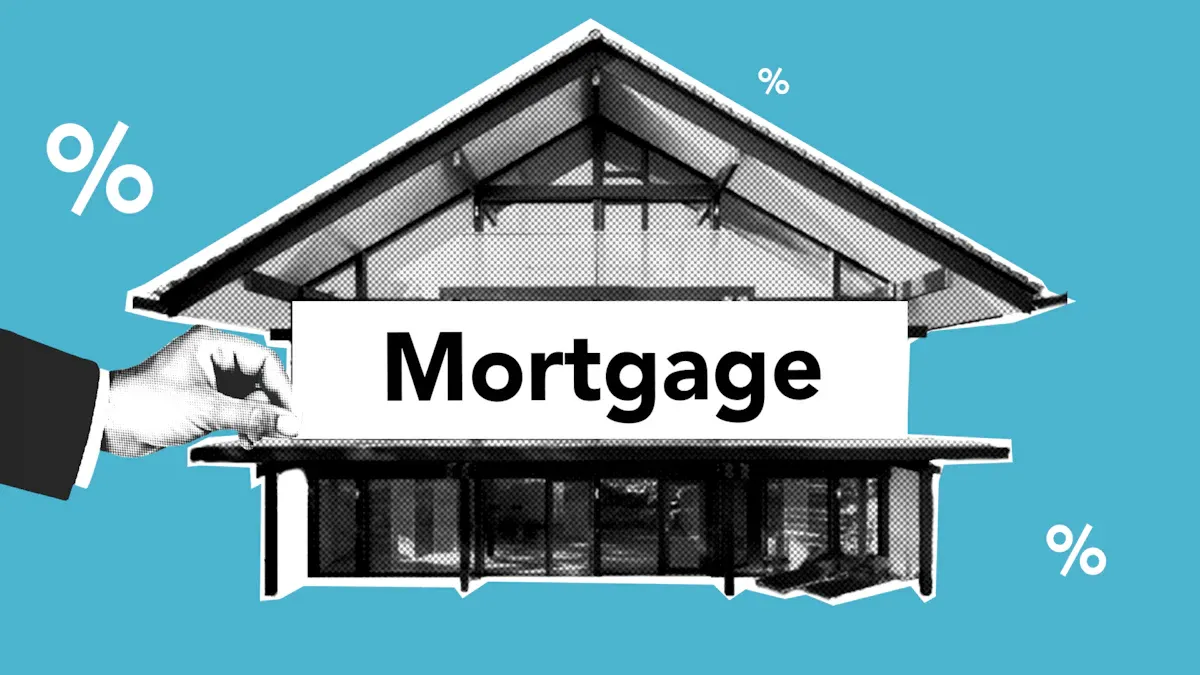Image Source: pexels
When you buy a home, understanding ‘Real Estate Closing Costs: A Complete Breakdown for Buyers’ is essential, as these costs are unavoidable. These fees and expenses are what you pay to finalize the purchase and include loan fees, taxes, and other charges. Many buyers underestimate these costs, which can range from 2% to 6% of the home price. For a $300,000 home, that translates to $6,000 to $18,000. First-time buyers, especially those with low incomes, often find these costs overwhelming. In fact, 14.5% of them face closing costs that are equal to or greater than their down payment. By understanding these expenses, you can plan better and avoid any surprises.
Key Takeaways
- Closing costs are usually 2% to 6% of the home’s price. For a $300,000 home, this is $6,000 to $18,000. Be prepared to avoid surprises.
- Buyers often pay most closing costs, like loan fees and inspections. Knowing these costs helps you plan your budget better.
- You can lower closing costs by negotiating. Ask the seller to help or compare lenders for cheaper options.
What Are Real Estate Closing Costs?
Definition and Purpose
When I first started learning about buying a home, I quickly realized that closing costs are a crucial part of the process. These are the fees and expenses you pay to finalize your home purchase. They cover everything from loan origination fees to title insurance and taxes. Without these costs, the transaction can’t be completed. Think of them as the final step to officially becoming a homeowner. Understanding their purpose helps you see where your money is going and ensures you’re not caught off guard.
Closing costs serve an important role. They compensate the professionals who make the transaction possible, like lenders, title companies, and government agencies. They also ensure that all legal and financial requirements are met. By paying these costs, you’re essentially tying up all the loose ends of the home-buying process.
Timing of Payment
Timing is everything when it comes to closing costs. You typically pay them when you sign the closing documents. This happens at the end of the home-buying process, right before you get the keys to your new home. Both buyers and sellers share these costs, but the exact amounts depend on the terms of the sale and local regulations.
I always recommend planning ahead for this expense. Knowing when you’ll need to pay helps you budget more effectively. It also prevents any last-minute surprises that could delay your closing. Being prepared ensures a smoother transition into homeownership.
How Much Do Closing Costs Typically Cost?
Average Percentage of Home Price
When I first started researching closing costs, I was surprised to learn how much they could add to the overall expense of buying a home. On average, closing costs range from 2% to 5% of the home’s purchase price. For example, if you’re buying a $300,000 home, you could pay anywhere from $6,000 to $15,000 in closing costs. Some buyers might even encounter costs as low as 1% or as high as 5%, depending on the specifics of their transaction. These percentages might seem small, but they can significantly impact your budget. Planning for these costs early can help you avoid financial stress later.
Factors That Affect Costs
Several factors influence how much you’ll pay in closing costs. The type of loan you choose plays a big role. Loans with lower interest rates often come with higher upfront fees. The location of the property also matters. Some states impose additional taxes or fees that can increase your costs. The size of your loan and the services you select, like title insurance or home inspections, also contribute to the total. I always recommend reviewing your loan estimate carefully to understand where your money is going.
State and Regional Variations
Closing costs vary widely across the United States. For instance, New York has some of the highest costs, averaging $8,039, while West Virginia is on the lower end at $2,124. States like Florida have higher costs due to mortgage taxes, whereas Colorado avoids this fee entirely. Even within states, fees like origination and third-party charges can differ. For example, Utah tends to have higher origination fees, while Nevada’s third-party fees are more expensive. Knowing these regional differences can help you prepare better and even choose a location that aligns with your budget.
What Do Closing Costs Include?

Image Source: unsplash
Loan-Related Fees
Loan-related fees make up a significant portion of closing costs. When I bought my first home, I was surprised by how many charges were tied to the loan itself. These fees include:
- Loan origination charges: Typically 0.5% to 1% of the loan amount.
- Title insurance: Protects against legal disputes over ownership, costing around 0.5% to 1% of the loan amount.
- Appraisal costs: Usually between $300 and $600 to determine the home’s market value.
- Credit reporting fees: Range from $10 to $100 for pulling your credit history.
- Escrow account fees: Cover initial contributions for property taxes and insurance.
These fees ensure the lender has all the necessary information to approve your loan and protect their investment.
Title and Escrow Fees
Title and escrow fees are essential for ensuring a smooth transaction. Title insurance protects against ownership disputes, while escrow fees cover the cost of a neutral third party managing the funds. Escrow fees typically range from 1% to 2% of the home’s price. For a $300,000 home, this means $3,000 to $6,000. These fees might seem steep, but they provide peace of mind by safeguarding the transaction.
Taxes and Government Fees
Taxes and government fees are unavoidable when buying a home. These include property transfer taxes, recording fees, and other local charges. I always remind buyers to check their state and local regulations, as these fees can vary widely. For example, some states impose higher transfer taxes, while others may have minimal charges. Knowing these costs upfront helps you budget more effectively.
Prepaid Costs (e.g., insurance, property taxes)
Prepaid costs are upfront payments for expenses like homeowners insurance, property taxes, and mortgage interest. Lenders often collect six to twelve months of insurance premiums at closing. They also estimate property taxes and require two months’ worth upfront. When I closed on my home, I had to make an initial escrow deposit, which included additional months of insurance and taxes. These payments ensure you’re covered from day one.
Miscellaneous Fees
Miscellaneous fees can add up quickly. These include document preparation fees, courier fees for transporting documents, wire transfer fees, and notary fees. I also encountered a loan tie-in fee, which covered the cost of linking my loan to the escrow account. While these charges might seem minor, they can significantly impact your total closing costs. Reviewing your loan estimate carefully can help you spot and question any unnecessary fees.
Who Pays for Closing Costs?
Understanding who pays for closing costs is crucial when buying a home. These costs are typically shared between buyers and sellers, but the exact allocation depends on the agreement and local customs. Let me break it down for you.
Buyer Responsibilities
As a buyer, you’ll cover most of the closing costs. These include fees related to your loan, property inspections, and prepaid expenses. When I bought my first home, I was surprised by how quickly these costs added up. Here’s a breakdown of common buyer responsibilities:
- Appraisals: $500 to $800 to determine the home’s value.
- Government-backed loan mortgage insurance: 1% to 3.3% of the total loan.
- Escrow account: Two months’ worth of insurance and property taxes upfront.
- Recording fees: Around $125 to file the transaction with local authorities.
- Discount loan points: 1% of the loan amount per point.
- Origination costs: About 1% of the loan amount.
- Inspection fees: Typically $150 for a home inspection.
- Tax monitoring: Around $150 to ensure taxes are paid.
- Title fees: 0.5% to 1% of the loan amount.
- Flood monitoring: Approximately $50.
These costs ensure the transaction is legally and financially secure. Planning for them in advance can help you avoid surprises.
Seller Responsibilities
Sellers also have their share of closing costs. These often include fees related to transferring ownership and clearing any existing obligations. When I sold my previous home, I had to cover several expenses to finalize the deal. Here’s what sellers typically pay for:
- Transfer taxes: Fees for transferring property ownership.
- Title-related fees: Costs for title search and insurance.
- Escrow fees: Charges for managing funds during the transaction.
- Attorney fees: Legal fees, required in some states.
- Mortgage payoff: The remaining balance on the seller’s mortgage.
- Seller concessions: Credits to help the buyer with their closing costs.
These costs can vary depending on the location and terms of the sale. Sellers often negotiate these expenses to make their property more appealing.
Negotiating Cost Allocation
Negotiating closing costs can save you thousands. I’ve found that understanding your options and being proactive can make a big difference. Here are some strategies to consider:
- Negotiate With Your Lender: Ask for reductions or waivers on certain fees after reviewing your Loan Estimate.
- Negotiate With The Seller: If the property isn’t attracting many buyers, request that the seller covers more of the closing costs or lowers the sale price.
- Know What the Seller Typically Pays For: Familiarize yourself with customary seller costs and ask for concessions to offset your expenses.
- Consider a No-Closing-Cost Mortgage: Roll the closing costs into your loan principal to reduce upfront payments.
- Look for Grants and Other Help: Explore local programs offering assistance with down payments and closing costs, especially if you’re a first-time buyer.
Tip: Negotiation is a powerful tool. Don’t hesitate to ask for adjustments that align with your financial goals.
By understanding who pays for what and leveraging negotiation strategies, you can manage your closing costs more effectively.
How to Reduce or Negotiate Closing Costs

Image Source: pexels
Compare Lenders and Service Providers
When I bought my first home, I quickly learned that comparing lenders and service providers can save thousands. Here’s how I approached it:
- I requested Loan Estimate forms from multiple lenders to compare fees.
- I didn’t just focus on interest rates. I looked for hidden charges like origination fees or underwriting costs.
- For optional services, like title insurance, I shopped around for better rates.
Lenders must provide a detailed breakdown of costs in the Loan Estimate form. This transparency makes it easier to negotiate and find competitive pricing. By taking the time to compare, I reduced my closing costs significantly.
Request Seller Concessions
Seller concessions can be a game-changer. When I negotiated with the seller, I asked them to cover part of my closing costs. This reduced my upfront expenses and made the purchase more affordable. Sellers often agree to concessions when the market favors buyers or when issues arise during inspections. For example, I requested the seller to pay for my appraisal fee after a minor repair was needed. It’s worth asking—it could save you thousands.
Review Loan Estimate and Closing Disclosure
I always tell buyers to review their Loan Estimate and Closing Disclosure carefully. These documents outline your loan terms and costs. I compared the two to ensure there were no discrepancies. For instance, I checked that the interest rate, loan amount, and monthly payments matched. I also verified that total closing costs didn’t exceed 10% of the original estimate. This step helped me avoid unexpected charges.
Look for Discounts or Waivers
Many lenders and service providers offer discounts or waivers. I asked my lender about promotions for first-time buyers. Some waived application fees, while others offered reduced rates for bundled services. I also found that some title companies provided discounts for veterans. These small savings added up and made a big difference in my budget.
Avoid Unnecessary Fees
Unnecessary fees can inflate your closing costs. I made sure to avoid charges like excessive late fees or unnecessary inspections. Here’s a quick table of fees to watch out for:
| Unnecessary Fees | Description |
|---|---|
| Excessive late fees | High fees charged beyond what’s reasonable or capped by the mortgage. |
| Unnecessary inspections | Fees for inspections that aren’t required or result from address errors. |
| Mortgage premiums | Private mortgage insurance charges that aren’t applicable. |
| Fees during financial hardship | Charges that should be waived during forbearance or loss mitigation. |
By questioning these fees and staying informed, I kept my costs under control.
Tip: Always ask questions. If a fee doesn’t make sense, challenge it. You might be surprised by how much you can save.
Understanding closing costs is essential for a smooth home-buying experience. These expenses can significantly impact your budget, but you can manage them effectively with the right strategies.
Here are some of the most effective ways to reduce closing costs:
- Pay attention to lender fees and shop around for better rates.
- Negotiate with the seller for credits or concessions.
- Consider a no-closing-cost mortgage to reduce upfront expenses.
- Look for grants or rebate programs that assist with closing costs.
- Schedule your closing at the end of the month to minimize prepaid interest charges.
Proactive preparation is equally important. I always recommend budgeting for common expenses like lender fees, title insurance, and appraisal costs before making an offer. Requesting a Closing Disclosure form early and setting aside extra funds for unexpected costs can also help you stay ahead.
Tip: Knowledge is power. By planning ahead and negotiating wisely, you can save thousands and make your dream of homeownership more affordable.
FAQ
What happens if I can’t afford closing costs upfront?
You can explore options like rolling costs into your mortgage, requesting seller concessions, or applying for grants designed to assist buyers with closing expenses.
Tip: Always ask your lender about no-closing-cost mortgage options.
Can I negotiate every closing cost?
Not all fees are negotiable. Government fees and taxes are fixed. However, you can negotiate lender fees, title insurance, and even request seller contributions to reduce your costs.
Are closing costs tax-deductible?
Some costs, like mortgage interest and property taxes, may qualify for deductions. I recommend consulting a tax professional to understand what applies to your situation.
Note: Keep all closing documents for tax filing purposes.
